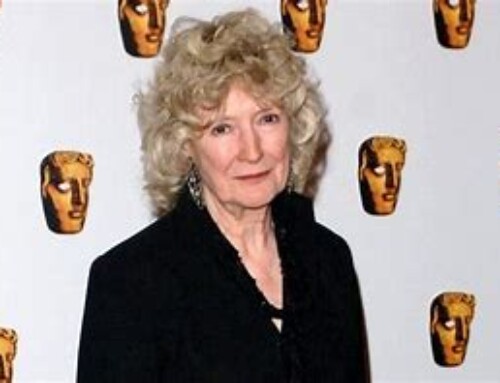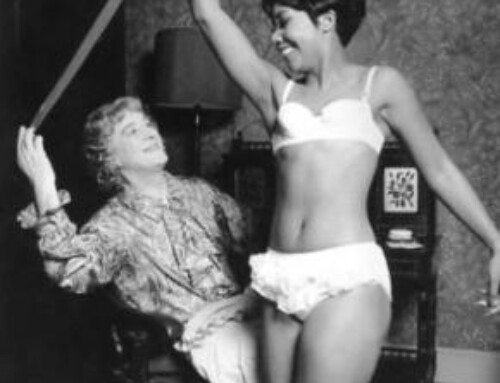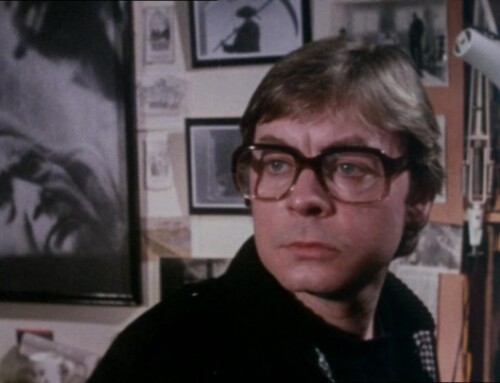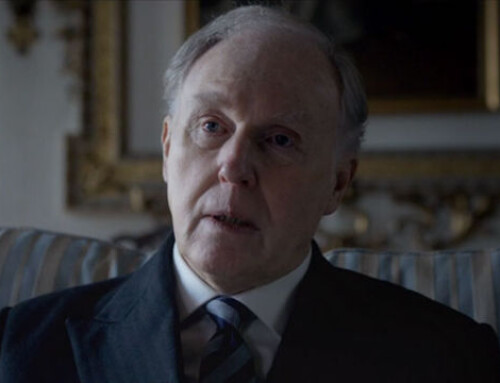Simon Gray on Rik Mayall
From various writings, including the diaries The Year of the Jouncer and Fat Chance, which includes an account of the 1988 production of The Common Pursuit.
Rik sometimes made me think of the Sun-King, because of the glow or aura, golden as in those icons of Louis….
So signed up were… I found his strange, almost innocent directness both unbalancing and attractive—but I was pretty sure that he didn’t belong in any production of a play by me. After about an hour of pretty hopeless conversation he suddenly said, “Look, let’s get out of here. Let’s go somewhere normal.” He led me out of Groucho’s and around several corners to a Soho pub, where he was greeted by a packed house of boozers, who identified him the moment he surged through the door. …I suppose we had a further talk in that pub, but I don’t recall it. I know that when we finally parted I went straight back to Groucho’s, phoned the producer and said firmly that Rik Mayall was not for me… He was aghast. “You’re turning down Rik Mayall? You don’t want Rik Mayall? probably the most popular star with the young…” I said I just didn’t think he was right as a Cambridge literary intellectual on the make. “But he’ll sell the show,“ he said… “Rik Mayall particularly will give us full houses to the end of the run.” I spent the next day or two pondering the Rik Mayall situation. On the one hand an actor—a stand-up comedian and sit-com performer, rather—who seemed not to understand the play but wanted to mess about with his friends, and on the other a resolutely puritanical playwright/director who knew absolutely nothing about the generation of actors with whom he was working. On an impulse, without any idea of what I was going to say, I phoned Rik. “You’re on,” a voice said from out of me that wasn’t exactly mine, coming from an intelligence I mostly lack. …It’s always a shock, I imagine, to find yourself the oldest person in the room when once you were the youngest. What surprised me was the discovery that this junior generation of versatile, knock-about, anarchic comics had perfect manners—natural, easy, unfailingly warm and courteous—also serious in their work, determined to do their order xanax with no prescription best by the play. Nice people, that’s what they were, even if they had the impudence to be twenty or so years younger than myself. Nice people. Probably nicer than myself, by a long way. This niceness made directing them an easy enough affair on the surface—no tantrums, no jealousies over centre-stage and being upstaged, not even minor tiffs over such matters as tea, coffee, sandwiches… The only real problem that I had when in rehearsal with The Common Pursuit was, of course, Rik. …I knew he thought he was offering something valuable, the Rik-original-and-inventive-comic that his fans loved—and I felt there would be a kind of cruelty in refusing him the gifts he was bringing to me… I let it go for a while…before I decided that cruelty was the only kindness. To both of us. So one afternoon, late into the second week, I gathered all my strength and set about him. It turned out to be both exciting and easy. All I had to do was say “Don’t,” “Don’t do this here,” “Don’t do that there,” “You don’t need this,” “You don’t need that,” – a succession of sympathetic negatives which Rik accepted with a kind of welcoming relief, as if he’d hoped for this, longed for this exposure. And what was exposed, what he exposed to us in the rehearsal room, was not just that he was a true actor but that he could be a great one. Once he’d got to where he needed to be, to where his deepest instincts as an actor had led him, Rik was in a state of exhilaration. And on his way to becoming a nervous wreck. He longed for an audience, the prospect of which terrified him. When we gave a run-through for the producer, the first ‘outsider’ to visit our work, Rik lost his lines, forgot his moves, left on the middle of a scene through which he was fluffing helplessly, for the lavatory, where he was sick. It was hopeless, he was hopeless, but I felt fine. Rik, denuded, was all raw nerve–ends, without faith in himself… but he stuck to the path, the straight and narrow, his proper path, recollected his lines and his moves, and when we opened at Watford for two weeks of previews, glowed with confidence, his timing quite masterful, his presence electrifying, from the first moment of his entry, when without trick or ogling he made the audience alert to his presence, made them laugh by living faithfully within his character, always offering that character to the other actors to play off. Friends in the theatre admired Rik without reservation—for Harold Pinter, for instance, he was ‘the bee’s knees’. …However often I go down the stair, up and down the stair, will I again chance upon an actor with the gifts of Rik Mayall, the man who, for all his anxieties and vulnerabilities, was always there.
Watch Rik Mayall reading from Simon Gray’s diary, The Year of the Jouncer.




